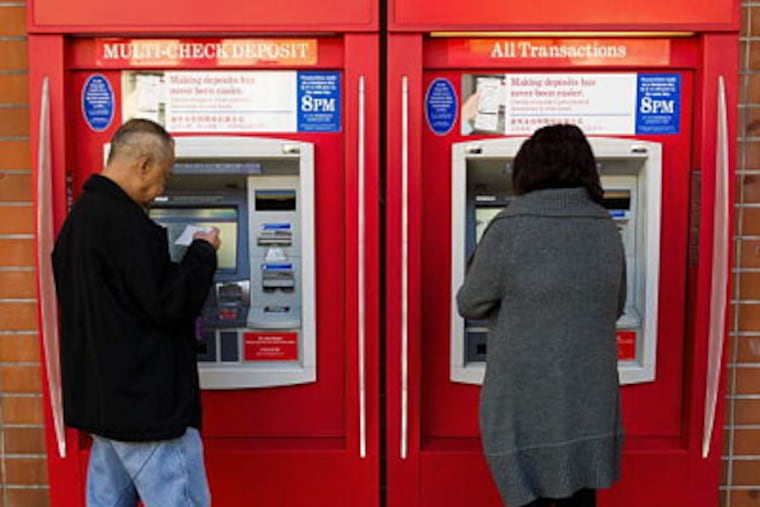Pew study: Overdraft fees still take account-holders by surprise
Nearly two years after the Federal Reserve began requiring banks to get customers’ permission before subjecting them to controversial overdraft practices, many account-holders are still surprised when they are charged overdraft fees for debit-card purchases or ATM withdrawals that could simply have been declined, says a new study financed by the Pew Charitable Trusts. The Pew study found that more than half of those hit with overdraft fees did not believe they had opted in to the policies, which enable banks to approve purchases or withdrawals for customers short of funds and then charge them fees for the transactions. Pew says the median bank overdraft fee is about $35.

Nearly two years after the Federal Reserve began requiring banks to get customers' permission before subjecting them to controversial overdraft practices, many account-holders are still surprised when they are charged overdraft fees for debit-card purchases or ATM withdrawals that could simply have been declined, says a new study financed by the Pew Charitable Trusts.
The Pew study found that more than half of those hit with overdraft fees did not believe they had opted in to the policies, which enable banks to approve purchases or withdrawals for customers short of funds and then charge them fees for the transactions. Pew says the median bank overdraft fee is about $35.
Pew has focused on unexpected overdraft fees as part of its Safe Checking in the Electronic Age Project, which says the fees pose financial risk, particularly to younger and less-affluent customers.
Overdraft fees, which the economic-research firm Moebs Services says generated close to $30 billion last year, have also been criticized by advocacy groups such as the Consumer Federation of America and since February have been the subject of an inquiry by the federal Consumer Financial Protection Bureau (CFPB).
In an earlier report, Pew said overdraft policies were typically detailed in stacks of account disclosures that averaged 111 pages at the nation's largest banks.
The new study, based on a survey of more than 6,000 people in March and April, said that about 10 percent had been charged for an overdraft during the previous 12 months for a purchase or cash-machine withdrawal.
Many of the 606 respondents who had paid an overdraft fee did not understand key aspects of their banks' policies, said Susan K. Weinstock, director of the Pew checking project.
"The big point that jumped out at me is that there is so much consumer confusion about this service," Weinstock said in an interview Monday. "Seventy-five percent of overdrafters would prefer to have a transaction declined rather than have it go through and pay the $35 fee."
Weinstock said confusion was magnified by banks' nomenclature for the programs, which the Federal Reserve allows them to present as their "standard overdraft practices."
"Different banks call it different names," she said. "Some call it 'overdraft protection,' some call it 'bounce protection.'" More than a third of the overdrafters surveyed "did not know they had overdraft coverage until after they incurred a penalty," the study found.
Pew recommends requiring banks to label the fee as an "overdraft penalty," to distinguish the underlying programs from cheaper alternatives that most banks offer. Weinstock said customers who opt to cover overdrafts from a savings account or a line of credit pay a median fee of $10 for the transfer.
Pew has also urged the CFPB to bar banks from clearing a day's transactions in ways designed to charge extra overdraft fees, such as by reordering them from largest transaction to smallest.
Weinstock said clearing from smallest to largest would be reasonable, especially because banks are typically paying all the overdrafts in question. So would a fee-neutral approach, such as clearing transactions chronologically.
"We say that if the purpose of reordering is to maximize fees, it should be stopped," she said.
Contact Jeff Gelles at 215-854-2776 or jgelles@phillynews.com.